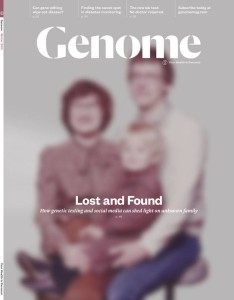It’s no secret that America has a weight problem.
According to the latest statistics from the Centers for Disease Control, more than a third of U.S. adults are obese — nearly 79 million people. On top of that, obesity also affects our kids, with nearly 18 percent of children and 21 percent of adolescents categorized as obese. The price tag for our girth as a nation is equally impressive. In 2008, the medical cost of obesity in the U.S. came to $147 billion, as obesity-related diseases — including heart disease, stroke, and diabetes — ranked among the leading causes of preventable death.
More than likely, when it comes to explaining all of those extra pounds, you think you’ve heard it all before. It’s a simple equation: We’re consuming too many calories and burning too few. But what if that familiar story about diet and exercise has left out a rather complex and mysterious plot twist? Could our burgeoning waistlines, along with other diseases of modern life, also be tied to medicines that otherwise healthy people are taking and giving to their kids for the purpose of getting well?
The Plot Thickens
Growing evidence points to antibiotics and their overuse as an unexpected culprit behind our obesity woes. You see, antibiotics are generally indiscriminate when it comes to killing bacteria. That might sound okay if you think of microbes only as “germs.” But scientists are now coming to understand the intricate role that those microbes, known collectively as a microbiome, play in our health, metabolism, and basic physiology. (For more on this topic, see “Change Your Microbiome, Change Yourself” in our Spring 2014 issue.) As Martin Blaser, the director of the Human Microbiome Program at the New York University School of Medicine and author of the book Missing Microbes, explains it, the human body is “somewhere between 70 and 90 percent bacteria.”
Read the full article at Genome Magazine »
Genome Magazine‘s mission is to explore the world of personalized medicine and the genomic revolution that makes it possible, empowering you to make informed health decisions that will help you live better and longer.

